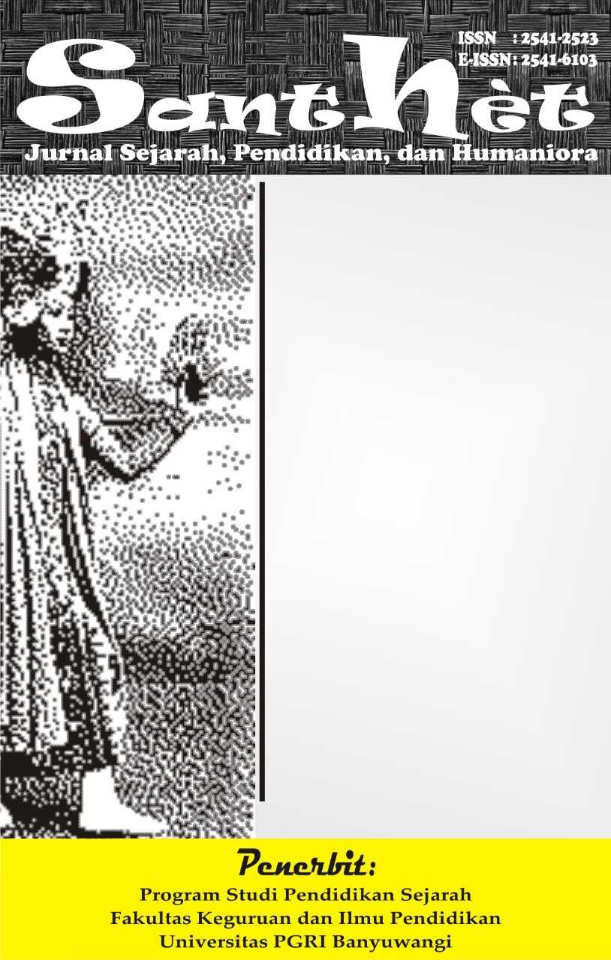Greenwashing The Global South: Carbon Markets and the Legacy of Colonial Extraction
Greenwashing The Global South: Carbon Markets and the Legacy of Colonial Extraction
DOI:
https://doi.org/10.36526/santhet.v9i5.6380Keywords:
Carbon Offset; Climate Colonialism; Postcolonial Theory; Global South; Climate JusticeAbstract
This paper critically examines carbon offset markets through a postcolonialism lens, arguing that these mechanisms embody a form of climate colonialism. Although often presented as pragmatic solutions to global climate change, carbon offsets tend to reproduce entrenched patterns of exploitation and inequality. Specifically, carbon offsets enable the Global North to continue emitting greenhouse gases while outsourcing environmental responsibility to the Global South, which effectively becomes a carbon sink. Drawing on qualitative analysis on policy discourses, real-world case studies, and postcolonial theory, this research examines how carbon markets facilitate land dispossession, resource extraction, and the accumulation of ecological debt. These processes echo historical colonial structures of domination and dependency. The paper foregrounds critical perspectives from the Global South, highlighting resistance to carbon offset practices and emphasizing the need for decolonial approaches to climate governance. Ultimately, it challenges dominant “green economy” narratives and advocates for climate justice rooted in equity, historical accountability, and non-market-based alternatives.
References
Alkmin, F. M. (2023). Colonialismo climático e financeirização do carbono: Reflexões sobre o REDD+ e a autonomia socioterritorial dos povos indígenas na Amazônia. AMBIENTES: Revista de Geografia e Ecologia Política, 5(2). https://doi.org/10.48075/amb.v5i2.31885
Bhambra, G. K., & Newell, P. (2023). More than a metaphor: ‘climate colonialism’ in perspective. Global Social Challenges Journal, 2(2), 179–187. https://doi.org/10.1332/EIEM6688
Bumpus, A. G., & Liverman, D. M. . (2010). Carbon colonialism? Offsets, greenhouse gas reductions, and sustainable development. In Global Political Ecology (pp. 217–238). Routledge. https://doi.org/10.4324/9780203842249-21
Cabello, J., & Gilbertson, T. (2012). A colonial mechanism to enclose lands: A critical review of two REDD focused special issues. ResearchGate. https://www.researchgate.net/publication/329718576_A_colonial_mechanism_to_enclose_lands_A_critical_review_of_two_REDD-focused_special_issues
Castree, N., Akhter, M., Chari, S., Sidaway, J. D., & Jazeel, T. (2020). Postcolonialism. The AAG Review of Books, 8(3), 183–191. https://doi.org/10.1080/2325548X.2020.1760659
Checker, M. (2011). Wiped Out by the “Greenwave”: Environmental Gentrification and the Paradoxical Politics of Urban Sustainability. City & Society, 23(2), 210–229. https://doi.org/10.1111/j.1548-744X.2011.01063.x
Ciscell, G. M. (2010). Beyond CO2lonialism: the potential for fair trade certification to embrace voluntary carbon offsets. International Journal of Sustainable Society, 2(2), 121. https://doi.org/10.1504/IJSSOC.2010.033625
Evite, P. M., & Zara, R. (2023). Neocolonialism in Carbon Offset Markets. SSRN Electronic Journal. https://doi.org/10.2139/ssrn.4651498
Fuentes-George, K. (2023). The Legacy of Colonialism on Contemporary Climate Governance. Georgetown Journal of International Affairs, 24(1), 91–98. https://doi.org/10.1353/gia.2023.a897706
Hartnett, R. (2021). Climate Imperialism: Ecocriticism, Postcolonialism, and Global Climate Change. ETropic: Electronic Journal of Studies in the Tropics, 20(2), 138–155. https://doi.org/10.25120/etropic.20.2.2021.3809
Haya, B., Cullenward, D., Strong, A. L., Grubert, E., Heilmayr, R., Sivas, D. A., & Wara, M. (2020). Managing uncertainty in carbon offsets: insights from California’s standardized approach. Climate Policy, 20(9), 1112–1126. https://doi.org/10.1080/14693062.2020.1781035
Haya, B. K., Alford-Jones, K., Anderegg, W. R. L., & Beymer-Farris, B. (2023). Quality Assessment of REDD+ Carbon Credit Projects. ReseachGate. https://www.researchgate.net/publication/374001584_Quality_Assessment_of_REDD_Carbon_Credit_Projects
Lamont, C. (2021). Research Methods in International Relations. SAGE.
Lovell, H., & Liverman, D. (2010). Understanding Carbon Offset Technologies. New Political Economy, 15(2), 255–273. https://doi.org/10.1080/13563460903548699
Mahony, M., & Endfield, G. (2018). Climate and colonialism. WIREs Climate Change, 9(2). https://doi.org/10.1002/wcc.510
Mohammed, E. (2011). Pro-poor benefit distribution in REDD+: Who gets what and why does it matter? Munich Personal RePEc Archive. MPRA, 1(1). https://mpra.ub.uni-muenchen.de/43648/
Scheba, A., & Scheba, S. (2017). REDD+ as ‘inclusive’ neoliberal conservation: the case of Lindi, Tanzania. Journal of Eastern African Studies, 11(3), 526–548. https://doi.org/10.1080/17531055.2017.1357102
Singh, N. (2023). Climate Justice in the Global South: Understanding the Environmental Legacy of Colonialism. E-International Relations. https://www.e-ir.info/2023/02/02/climate-justice-in-the-global-south-understanding-the-environmental-legacy-of-colonialism/
Sultana, F. (2022). The unbearable heaviness of climate coloniality. Political Geography, 99, 102638. https://doi.org/10.1016/j.polgeo.2022.102638
Tsai, W.-H. (2020). Carbon Emission Reduction—Carbon Tax, Carbon Trading, and Carbon Offset. Energies, 13(22), 6128. https://doi.org/10.3390/en13226128
Young, R. J. C. (2020). Postcolonialism: A Very Short Introduction. Oxford.
Zaamout, N. M. (2020). Post-colonialism and Security. In The Palgrave Encyclopedia of Global Security Studies (pp. 1–5). Springer International Publishing. https://doi.org/10.1007/978-3-319-74336-3_569-1





























